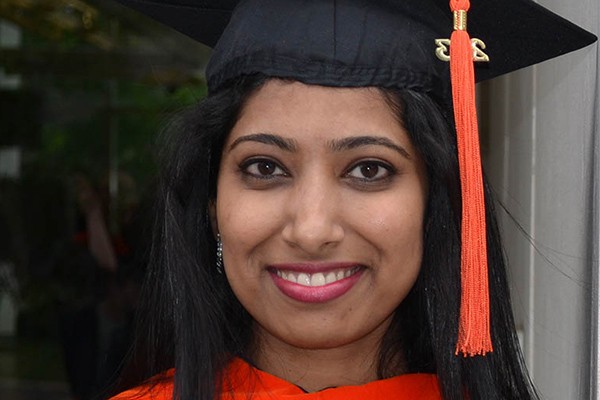MASTER OF SCIENCE IN ELECTRICAL ENGINEERING
Advance your career in electrical engineering by updating your knowledge and developing new skills through the Master of Science in Electrical Engineering program at Villanova University.
Concentrations
The MSEE offers five concentration areas, as well as an option for a custom degree plan:
- Electronic Circuits and Systems (ECS)
- Electric Energy Systems (EES)
- Microwave, Antenna, and Photonic Systems (MAPS)
- Signal Processing and Communications (SPC)
- System Dynamics and Controls (SDC)
Our Community
Pursuing an engineering master's degree at Villanova is to become part of a close-knit scholarly community. Professors are highly available and engaged in their students' success.
Master's in Electrical Engineering:
- 19% female
- 67% part-time
- Average age: 29
- Total enrollment: 42
Flexible Options
Classes are conveniently held in the evenings to allow you to successfully balance work and family while earning your degree. You can participate in class on campus, in real-time (synchronously) via our E-Learning program, or on your own schedule through recorded materials and lectures. Our graduate programs are unique in that you can combine online and on campus options, attending class or participating remotely depending upon your availability and preference. You can also complete your electrical engineering graduate degree entirely online. Learn more about the opportunities of E-Learning.
Successful Outcomes
Graduates of Villanova's Master's of Electrical Engineering program go on to careers at companies such as:
Cobham Advanced Electronic Solutions
L3 Harris Technologies
Lockheed Martin
Lutron Electronics
Naval Surface Warfare Center
PECO
RESEARCH
Ongoing research areas for faculty in Electrical Engineering:
- 5G communication systems and beyond
- Automotive research
- Battery management and control algorithm development
- Biomedical signals and systems
- Biophotonics
- Inverse scattering and microwave imaging
- Low probability of intercept signal design
- Microgrid management and control
- Multi-function systems and RF co-existence
- Novel antennas and metasurfaces
- Optical sensing and communications
- Radar for commercial and defense sensing
- Semiconductor control devices for RF and microwave communication systems


